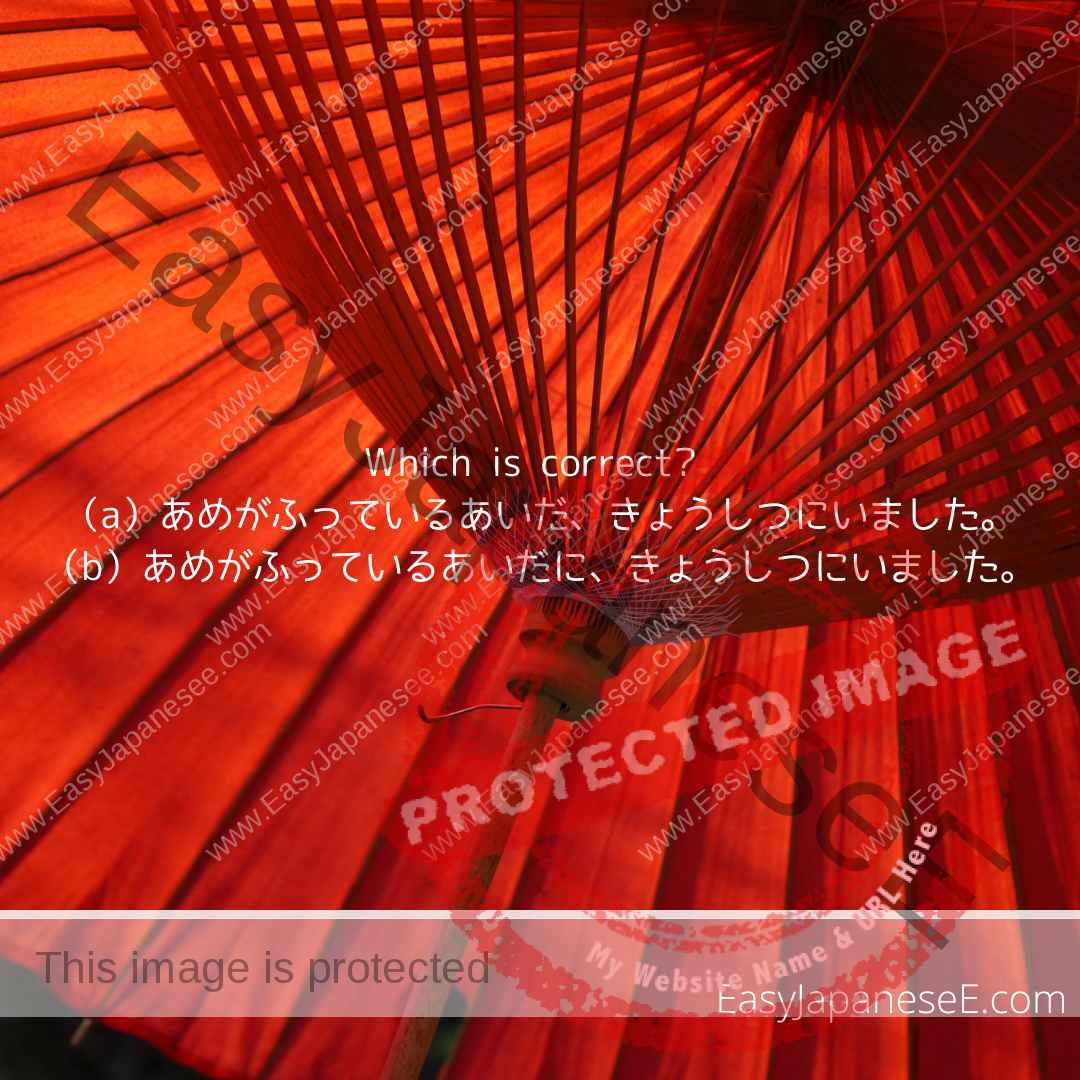あいだ is a conjunction which means “while…” but if it is used with another particle に, they mean somewhat different timing.
あいだ indicates the entire period the condition specified is continuing. That means that both phrases before and after あいだ must be something that lasts for a period of time, not something that can be over in no time.
On the other hand, あいだに instead of あいだ indicates one point during that period, so the clause after that can be a one-off action.
Please compare the examples below.
(✔)あめがふっているあいだ、きょうしつにいました。
(✖)あめがふっているあいだに、きょうしつにいました。(△)あめがふっているあいだ、そうじしました。(The sentence is OK, if you kept cleaning from the moment it started to rain until it stopped raining.)
(✔)あめがふっているあいだに、そうじしました。バスを待(ま)っている間(あいだ)、音楽(おんがく)を聴(き)いていました。
I was listening to music throughout the time when I was waiting for the bus.バスを待(ま)っている間(あいだ)に、音楽(おんがく)を聴(き)きました。
I listen to music while I was waiting for the bus (but did other things too).母(はは)が留守(るす)の間(あいだ)、私がごはんを作りました。
For the entire period when my mother was not home, I cooked all the meals.母(はは)が留守(るす)の間(あいだ)に、私もごはんを作りました。
While my mother was not home, I cooked some meals (and other cooked as well).夏(なつ)休(やす)みの間(あいだ)、日本(にほん)に行(い)きます。
I’m going to spend the entire summer holiday in Japan.夏(なつ)休(やす)みの間(あいだ)に、日本(にほん)に行(い)きます。
I am going to Japan during my summer holiday.
If you have a question, please feel free to write it in the comment field below.


One Reply to “the difference between あいだ and あいだに”